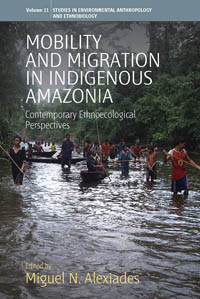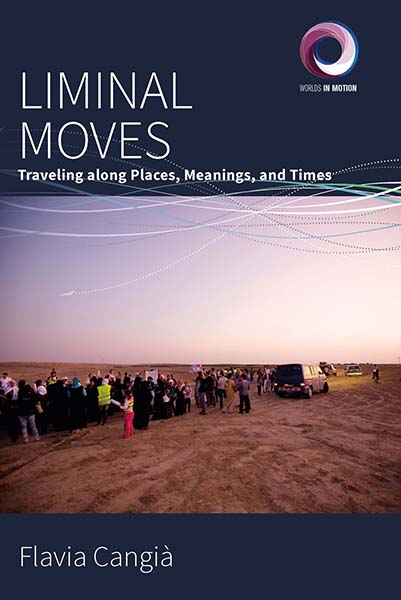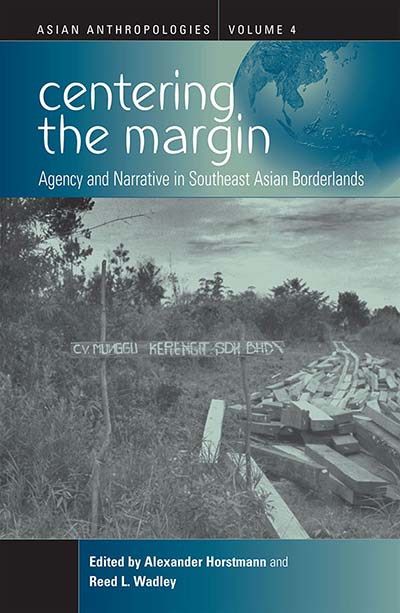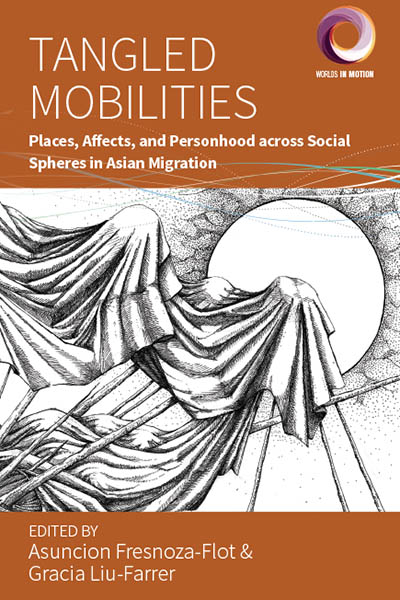
Series
Volume 11
Environmental Anthropology and Ethnobiology
Email Newsletters
Sign up for our email newsletters to get customized updates on new Berghahn publications.
Mobility and Migration in Indigenous Amazonia
Contemporary Ethnoecological Perspectives
Edited by Miguel N. Alexiades
304 pages, 16 illus., bibliog., index
ISBN 978-1-84545-563-7 $135.00/£104.00 / Hb / Published (April 2009)
ISBN 978-0-85745-797-4 $34.95/£27.95 / Pb / Published (December 2012)
eISBN 978-1-80758-629-4 eBook
Reviews
“This impressive compilation exploring multiple faces of ethnoecology and mobility will have broad appeal to audiences of anthropology, cultural geography, ethnoecology, ethnobotany, and Latin American studies…[Its] commendable incorporation of multiple nations and ethnic groups makes it a particularly valuable contribution.” · Anthropos
“One of the great strengths of Mobility and migration is the amount of ethnographic detail it provides for a large number of indigenous communities in Amazonia. It is this comprehensive information that makes the book a valuable read for anthropologists… especially those unfamiliar with the Amazon region or looking to increase their knowledge of Amazonian society. Brief and succinct, each chapter provides a snapshot of a new context and a new reality; thus presenting a new ethnoecological perspective on life in Amazonia…Most importantly, this book serves its main aim to challenge the idea of ‘spatial stasis’, becoming instead a collection of vivid and complex analyses that link the myriad ways in which indigenous populations interact with, and duly shape, the environment and nature.” · Durham Anthropology Journal
“…this volume persuades us to change our perspectives on several conventional assumptions about migration, local emplacement, and traditional ecological knowledge. The comparative anthropology of Amazonia has once again contributed to a decisive transformation in our general understanding of culture, history, and human-environmental relations. “ · Tipit´ı: Journal of the Society for the Anthropology of Lowland South America
“This volume [by established and emerging scholars] is an important contribution to Indigenous ethnoecological research both within Amazonia and beyond, for it strongly refutes the understanding that Indigenous knowledge and cultures are static and unchanging…This engaging work forces a re-appraisal of such perceptions of Indigenous identity, through uncovering repeated movement, change, adaptation, and ethnoecological genesis amongst the peoples and environments of lowland Amazonia.” · Economic Botany
“The authors .. make a convincing collective case for an understanding of ecological knowledge as historically contingent in space as well as time, effectively complementing the importance now placed on local historicity with a sense of different ways of inhabiting and relating to space.” · JRAI
“This is a very rich collection of studies illuminating the complex relations between human movement, exchange, knowledge, and ecology among the native peoples of Amazonia since Pre-Columbian times. It persuades us to change our perspectives on several conventional assumptions about migration, local emplacement, and traditional ecological knowledge. Once again the comparative anthropology of Amazonia has contributed to a decisive transformation in our general understanding of culture, history, and human-environmental relations.” · Professor Alf Hornborg, Lund University
“Mobility and migrations have always been of significance in the Amazon since people first arrived there. So much information is now brought together in this fascinating book. Evidences from the distribution of languages, plants and people from historic to modern times make this a volume that will be basic reading on the topic for many years to come.” · Professor Sir Ghillean Prance FRS, VMH, (Former Director of the Royal Botanic Gardens, Kew), Scientific Director, The Eden Project
"The originality and importance of Alexiades' edited volume relates to recent developments in our understanding of Amazonian and its inhabitants. Set in the wider context of this new understanding, the volume not only fully takes on board the fact and implications movement, migration and displacement — rare in itself — but also does so in relation to a very under-explored area, human – environmental relations and the development and transmission of ecological knowledge. It is thus a very welcome initiative that adds a new and important dimension to historicization and regionalization of Amazonian studies." · Stephen Hugh-Jones, Cambridge University
Description
Contrary to ingrained academic and public assumptions, wherein indigenous lowland South American societies are viewed as the product of historical emplacement and spatial stasis, there is widespread evidence to suggest that migration and displacement have been the norm, and not the exception. This original and thought-provoking collection of case studies examines some of the ways in which migration, and the concomitant processes of ecological and social change, have shaped and continue to shape human-environment relations in Amazonia. Drawing on a wide range of historical time frames (from pre-conquest times to the present) and ethnographic contexts, different chapters examine the complex and important links between migration and the classification, management, and domestication of plants and landscapes, as well as the incorporation and transformation of environmental knowledge, practices, ideologies and identities.
Miguel N. Alexiades is Senior Lecturer at University of Kent, Canterbury (UK) and the Cultural Landscapes and Resource Rights Program Manager at People and Plants International (PPI). He is the editor of Selected Guidelines for Ethnobotanical Research: A Field Manual (1996, New York Botanical Garden Press) and Forest Products, Livelihoods and Conservation: Case-Studies of NTFP Systems (2004, Center for International Forestry Research).




